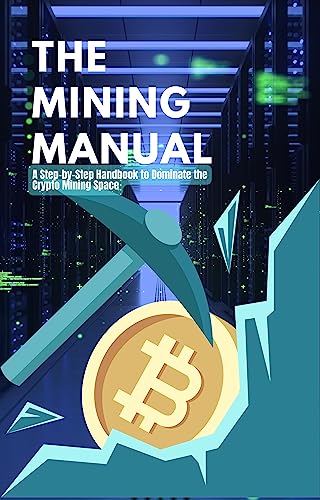50 Algorithms Every Programmer Should Know: Tackle computer science challenges with classic to modern algorithms in machine learning, software design, data systems, and cryptography
$39.99

Price: [price_with_discount]
(as of [price_update_date] – Details)
Over 50% update with new chapters on sequential models explaining modern deep learning techniques, like LSTMs, GRUs, RNNs and the expansive realm of Generative AI and Large Language Models (LLMs).
Purchase of the print or Kindle book includes a free eBook in PDF format.
Key FeaturesDiscussion on Advanced Deep Learning ArchitecturesExplore newer topics, such as how to handle hidden bias in data and the explainability of the algorithmsGet to grips with different programming algorithms and choose the right data structures for their optimal implementationBook Description
The ability to use algorithms to solve real-world problems is a must-have skill for any developer or programmer. This book will help you not only to develop the skills to select and use an algorithm to tackle problems in the real world but also to understand how it works.
You’ll start with an introduction to algorithms and discover various algorithm design techniques, before exploring how to implement different types of algorithms, with the help of practical examples. As you advance, you’ll learn about linear programming, page ranking, and graphs, and will then work with machine learning algorithms to understand the math and logic behind them.
Case studies will show you how to apply these algorithms optimally before you focus on deep learning algorithms and learn about different types of deep learning models along with their practical use.
You will also learn about modern sequential models and their variants, algorithms, methodologies, and architectures that are used to implement Large Language Models (LLMs) such as ChatGPT.
Finally, you’ll become well versed in techniques that enable parallel processing, giving you the ability to use these algorithms for compute-intensive tasks.
By the end of this programming book, you’ll have become adept at solving real-world computational problems by using a wide range of algorithms.
What you will learnDesign algorithms for solving complex problemsBecome familiar with neural networks and deep learning techniquesExplore existing data structures and algorithms found in Python librariesImplement graph algorithms for fraud detection using network analysisDelve into state-of-the-art algorithms for proficient Natural Language Processing illustrated with real-world examplesCreate a recommendation engine that suggests relevant movies to subscribersGrasp the concepts of sequential machine learning models and their foundational role in the development of cutting-edge LLMsWho this book is for
This computer science book is for programmers or developers who want to understand the use of algorithms for problem-solving and writing efficient code.
Whether you are a beginner looking to learn the most used algorithms concisely or an experienced programmer looking to explore cutting-edge algorithms in data science, machine learning, and cryptography, you’ll find this book useful.
Python programming experience is a must, knowledge of data science will be helpful but not necessary.
Table of ContentsCore AlgorithmsData StructuresSorting and Searching AlgorithmsDesigning AlgorithmsGraph AlgorithmsUnsupervised Machine Learning AlgorithmsSupervised Learning AlgorithmsNeural Network AlgorithmsNatural Language ProcessingSequential ModelsAdvanced Machine Learning ModelsRecommendation EnginesAlgorithmic Strategies for Data Handling Large-Scale AlgorithmsEvaluating Algorithmic SolutionsPractical Considerations
From the Publisher




What makes this book different from other books on algorithms for programmers?
While many algorithm books cover traditional and foundational topics, I’ve tried to keep this book modern by diving into state-of-the-art algorithms in areas like deep learning, Large Language Models (LLMs), and sequential models. I want to show that the world of algorithms, is not static, but always evolving, which I also think is a more comprehensive view of algorithms.
An important topic I’d want to bring up about this is bias and explainability. In today’s world, where AI ethics is crucial, I’ve wanted this book to stand out in addressing the all-important topic of recognizing hidden biases in data and ensuring the transparency and explainability of algorithms.
(Image: Deep and wide LLM architecture models)
What this book covers Neural networks and deep learning Graph algorithms for fraud detection Machine learning applications Natural language processing Large Language Models Recommendation systems Cryptography on cloud platforms Parallel processing techniques


This second edition of 50 Algorithms Every Programmer Should Know not only has the updated versions of most algorithms from the first edition in line with current IT trends, but it also aims to help readers delve into advanced deep learning architectures and new chapters on sequential models like LSTMs, GRUs, RNNs, and LLMs.
Furthermore, through this edition, I’ve tried to shed light on contemporary topics such as addressing hidden data biases and demystifying algorithm explainability.


What approach does this book take to get readers started?
I’ve designed this book to strike a balance between helping readers select and use an algorithm to solve a real-world problem and explaining the logic behind it for a deeper understanding.
For example, it begins with an introduction to algorithms, allowing readers to understand the various algorithm design techniques. As readers progress, they explore more advanced concepts and are taught the practical application of these algorithms using real-world examples.
(Image: A fundamental algorithm design)


How has your career helped you write this book?
I’ve had a rich background in cloud computing, AI, and machine learning that I want to bring to the table with this book. I’ve had experience in high-profile projects with the Canadian Federal Government, taught at Google, and am a visiting professor at Carleton University. My experience in all of these different projects with their own focuses and challenges has taught me some insights that I’d like to share, whether it’s about the applicability of some algorithms, or maybe their ethics, or their future direction. I hope it also adds a unique perspective to what I’ve written.
Publisher : Packt Publishing; 2nd ed. edition (September 29, 2023)
Language : English
Paperback : 538 pages
ISBN-10 : 1803247762
ISBN-13 : 978-1803247762
Item Weight : 2.02 pounds
Dimensions : 7.5 x 1.22 x 9.25 inches
[ad_2]
User Reviews
Be the first to review “50 Algorithms Every Programmer Should Know: Tackle computer science challenges with classic to modern algorithms in machine learning, software design, data systems, and cryptography”

$39.99









There are no reviews yet.